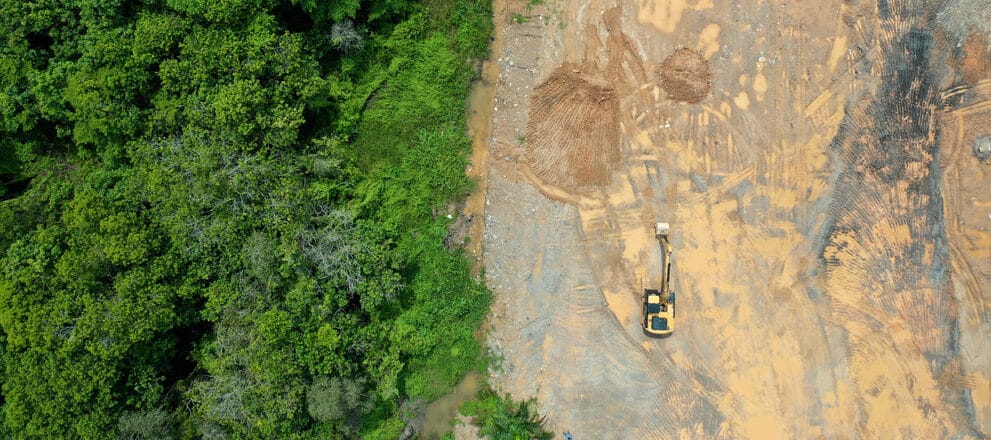
Corporate Sustainability
Due Diligence Directive compliance
The EU Corporate Sustainability Due Diligence Directive (CSDDD) will require in-scope companies to carry out risk-based human rights and environmental due diligence in their own operations and in their first tier suppliers.
This is likely to involve a new approach to due diligence, incorporating this into policies and risk management systems to identify, assess and resolve any adverse human rights and environmental impacts.
The proposed EU Omnibus Package, currently under negotiation, will bring some substantial changes to the original legislation. Nonetheless, there is much that companies can still do to prepare while these changes are finalised. We are providing updates on our LinkedIn page and on the goodblog.
Climate Transition Plans
In-scope organisations will also be required to draw up a climate transition plan (CTP) which aligns with their reporting obligations under the Corporate Sustainability Reporting Directive (CSRD). CTPs should set out how an organisation can reduce emissions and make its business model compatible with the global warming limit of 1.5°C specified in the Paris Agreement.


GoodCorporation’s
CSDDD services
GoodCorporation offers expertise in the management of human rights and environmental impacts with a range of services to help companies prepare for and comply with the CSDDD. These services include:
Development and integration of human rights and environmental due diligence
Identification and assessment of adverse impacts including : risk mapping, human rights impact assessments and supply chain mapping, and emissions reviews
Development of policies and procedures to build compliance practices
Grievance mechanisms
Training and embedding
Monitoring and progress reviews including KPIs, efficacy assessments
Defining human rights and environmental
due diligence
Under the EU Corporate Sustainability Due Diligence Directive (CSDDD), due diligence covers not just the activity of evaluating adverse impacts, but also management and remediation, as well as the mechanisms used to identify and alert the organisation to adverse impacts.
In this context ‘due diligence’ means the whole system of managing human rights and environmental impacts in an organisation’s own operations and in its first tier suppliers. In-scope companies will also be required to respond to ‘plausible information’ of adverse environmental and human rights harms. In practice this will mean mapping the value chain to understand where the harms might arise and implementing a system respond to any reports of harm.

Human rights and environmental due diligence framework
The GoodCorporation Framework on Human rights and Environmental Due Diligence is used by companies looking to prepare for and comply with the EU Corporate Sustainability Due Diligence Directive (CSDDD). It provides a set of responsible business principles which can help organisations to improve the robustness of their management practices in order to identify, prevent, mitigate and remediate their human rights and environmental impacts across their value chains.
Our framework draws directly on the measures set out in the CSDDD and follows its structure, while also incorporating best practice and international guidelines. It can be used to ensure compliance with the law, which will minimise an organisation’s potential liability for the fines, penalties and compensation available under the CSDDD.
Use our framework as the basis of an analysis against CSDDD requirements, or to identify any gaps in human rights and environmental due diligence processes and procedures. Aligned with international human rights best practice, the framework is equally relevant to the current CSDD Directive and the proposed changes in the Omnibus Package. It is used by companies looking to develop and implement robust human rights and environmental supply chain due diligence.



Understanding the EU Omnibus
The EU’s Omnibus Package, introduced in November 2024, aims to simplify several key pieces of sustainability legislation, including the Corporate Sustainability Due Diligence Directive (CSDDD), the Corporate Sustainability Reporting Directive (CSRD) and the EU Taxonomy. The stated goal is to reduce complexity while maintaining Europe’s competitiveness.
However, civil society groups and sustainability experts have raised concerns about the speed of the process and limited stakeholder input, arguing that the proposed changes could weaken the legislation rather than streamline it.
So far, only the first part of the package, known as the ‘Stop the Clock’ Directive, has been adopted. Attention is now turning to the next phase, the ‘Substantive Requirements’ Directive, which is expected to be voted on in October 2025.
Our recent blog explores what has happened so far, what’s currently on the table, and how businesses should respond. It also unpacks the implications of the proposed changes and outlines practical steps companies can take – whatever the final outcome. Read the full blog below.
Read our blog
Waiting for the EU Omnibus: Latest updates and next steps for businesses

Developing a climate transition plan
The directive also requires companies to set out a climate transition plan (CTP) which aligns with their reporting obligations under the Corporate Sustainability Reporting Directive (CSRD). CTPs should set out how an organisation could reduce emissions and make its business model compatible with the global warming limit of 1.5°C specified in the Paris Agreement.
Companies work with GoodCorporation, using our Environment Framework to improve the robustness of their environmental performance management and develop an actionable roadmap towards climate neutrality.
Use of the framework enables companies to identify and evaluate their environmental risks, develop an effective environmental strategy and embed practices and procedures that will align with global standards and legislation.
The framework can also be used as a gap analysis tool to identify strengths and weaknesses and build a plan for improvement with targets and KPIs to monitor and measure improvement over time.
Managing human rights impacts
GoodCorporation offers a range of services to help companies manage and mitigate their human rights impacts. In addition to the development and implementation of human rights due diligence we also offer:
Human rights risk mapping
Human rights impact assessments
Worker welfare assessments
Human rights and modern slavery policy development
Human rights
training
Watch the interview
Supply chain intelligence: CSDDD unpacked
The CSDDD is a landmark regulation requiring businesses both inside and outside the EU to address human rights and environmental risks across their operations and supply chains. In an interview with Matthew Ekroth, Head of EMEA Corporate Data Strategy at Bloomberg, GoodCorporation Director, Gareth Thomas, explained how the directive will oblige companies to identify, prevent, and mitigate adverse impacts, as well as integrate due diligence into their policies and practices.
Gareth also explored the directive’s scope, enforcement measures, and the challenges businesses may face in implementing these requirements. Watch the full interview here.

Frequently asked questions
The annex of the Directive specifies what is meant by adverse impacts on human rights and the environment in the corporate context. Impacts are drawn from internationally recognised human rights and environmental frameworks and instruments, including UNGPs and ILO conventions.
Adverse human rights impacts include adverse impacts on the right to life, liberty and security as well as the right to fair and favourable working conditions, fair wages and freedom of association. Impacts also cover issues such as child labour and forced labour, as well as adverse impacts on the ecosystem that restrict human rights and rights to lands and resources.
Adverse environmental impacts include tangible environmental degradation such as waste handling and disposal, marine and land pollution, biodiversity and the use and management of chemicals.
Adverse environmental impacts refer to tangible environmental degradation such as waste handling and disposal, marine and land pollution, biodiversity and the use and management of chemicals.
Under the CSDDD, it will be mandatory for large companies with operations in the EU, who meet the threshold requirements, to carry out human rights and environmental risk-based due diligence in their own operations and in those of their subsidiaries and business partners. The EU Omnibus Package proposes that this will only relate to first-tier suppliers.
However, it also proposes that companies will be required to carry out in-depth risk assessments in response to any ‘plausible information’ suggesting that adverse environmental or human rights impacts have occurred or may occur in their wider value chain.
Plausible information is defined as coming from a reliable source that allows the company to conclude that there is a reasonable likelihood that the information is true. Such sources include credible media or NGO reports, incident reports or recurring problems at certain locations or actual harmful activities at an indirect business partner.
There are eight specific requirements in the directive, which must be met if businesses are to ensure that they are fully compliant. Companies must therefore:
- Integrate due diligence into corporate policies and risk management systems
- Identify and assess actual or potential adverse human rights and environmental impacts
- Prevent and mitigate potential impacts; stop and remedy actual impacts
- Carry out meaningful stakeholder engagement
- Establish and maintain a notification mechanism and compliance procedure
- Monitor the effectiveness of due diligence policies and measures
- Communicate publicly on their due diligence
- Put into effect a climate action transition plan
It is estimated that some 6,000 large corporations will be in scope, including both EU-based and non-EU based businesses, but with different thresholds for each. These have been determined for the first wave of companies in scope as follows: -
- EU companies will be in scope if they have more than 1,000 employees and a net worldwide turnover in the last financial year of more than €450 million
- Non-EU companies will be in scope if they have a turnover in the last financial year of more than €450 million in the EU, irrespective of the number of employees.
Companies need to be aware that if they do not meet these criteria, they will still be in scope if the parent company meets these thresholds. In addition, both EU and non-EU companies will be in scope if the company or parent company has franchising or licensing agreements in the EU for annual royalties that exceed €22.5 million, and the company has a worldwide turnover in excess of €80 million.
The CSDDD entered into force on 26 July 2024. It was then subject to further debate under the Omnibus Package to align its requirements with other sustainability legislation. The subsequent EU ‘Stop the Clock’ Directive, introduced by the Omnibus Package, came into force on 17 April 2025 and updates the timings for compliance.
Member states now have until July 26 2027 to transpose the directive into national law.
There will be a phased approach to compliance, with in-scope organisations divided three categories by size and turnover. The deadline for largest companies (originally expected to comply the earliest in July 2027) has now been extended by a year.
Compliance by 26 July 2028:
EU companies with a worldwide turnover of more than €1500 million and more than 5000 employees PLUS non-EU companies with a turnover in the EU of more than €1500 million
EU companies with a worldwide turnover of more than €900 million and more than 3,000 employees PLUS non-EU companies with a turnover in the EU of more than €900 million
Compliance by 2029:
EU companies with a worldwide turnover of more than €450 million and more than 1,000 employees PLUS non-EU companies with a turnover in the EU of more than €450 million
Each member state will be required to designate a supervisory authority to oversee compliance with the CSDDD’s obligations, with powers to enforce both the due diligence obligations and climate related duties of the directive. Supervisory authorities will also be able to mandate companies to provide information regarding their due diligence processes and transition plans and carry out compliance investigations in those companies where there are concerns.
Where a failure to comply occurs, the supervisory authority can exert a number of powers including orders to:
- Cease the infringement,
- Abstain from any repetition, and
- Provide appropriate remediation.
There will also be the possibility of stringent penalties, with the directive requiring member states to ensure that these are effective, proportionate and dissuasive.
Supervisory authorities will therefore have the power to: –
- Issue fines
- Name and shame, with infringements of the new legislation made publicly available for at least five years.
However, the proposed EU-wide civil liability regime and maximum financial penalty has been removed in the Omnibus Package with EU Member States now expected to determine their own civil liability provision under national law. Companies will therefore need to monitor if and how individual Member States may choose to adopt a civil liability regime under their own national laws.
Although compliance may seem some way away, the obligations of the CSDDD will require substantive change for many organisations. A significant number of the companies we work with are already starting to consider whether the systems and processes that they have in place are fit for purpose or whether they need to build and embed new systems and processes to comply with the directive.
From the start, it will be important to identify the individuals and departments responsible for developing and managing the organisation’s due diligence processes and strategies. Best practice is also to ensure that top management and the Board also have oversight of human rights and environmental matters, and regularly review and challenge the company’s performance in this regard. Companies will need to make sure they have enough resources and expertise to ensure compliance.
To respond adequately to the eight key requirements of the directive, companies will need to: –
- Integrate human rights and environmental due diligence into corporate policies
- Identify actual and potential adverse human rights and environmental impacts
- Prevent or mitigate potential adverse impacts, mitigate and stop actual adverse impacts
- Carry out meaningful stakeholder engagement
- Establish and maintain a notification mechanism and a complaints procedure
- Monitor the effectiveness of due diligence policies and measures
- Communicate publicly on CSDDD due diligence undertaken
- Implement a climate transition plan
Human rights and environmental due diligence, as set out in the CSDDD, takes a different approach from what is traditionally understood by corporate due diligence. Using the definition of due diligence in the OECD guidelines for Responsible Business Conduct, the directive imposes a series of specific obligations. This includes not just identifying actual and potential problems, but also developing appropriate measures to address, prevent, mitigate and remediate any adverse impacts found.
As such, an on-going process is required that must be integrated into broader enterprise risk-management systems in the same way that other regulatory measures such anti-corruption, health and safety and fraud prevention measures have been incorporated.
There are four key elements that distinguish the due diligence requirements of the directive from what is routinely understood by due diligence.
- In-scope companies are required to look to the future as well as the past, identifying potential as well as actual adverse impacts
- Companies must engage meaningfully with affected stakeholders. This means consulting with affected workers and their representatives and individuals and communities whose rights or interests are or could be directly affected by the products, services and operations of the company, its subsidiaries and it’s business partners to gain an accurate assessment of the impacts and how they can be prevented and remedied.
- The due diligence must focus primarily on the adverse impacts on people and planet, rather than the negative impacts to the business.
- The directive imposes a duty not just to identify the adverse impacts but to fix them, with significant penalties for any failure to do so.
For more information read our blog on key steps for conducting CSDDD due diligence
In essence, the CSRD focuses on reporting while the CSDDD focuses on taking action.
Under the CSRD, in scope companies are required to disclose specified sustainability information. This will mean reporting on ESG-related risks and impacts as set out in the European Sustainability Reporting Standards (ESRS). This includes making quantitative and qualitative disclosures about a broad range of sustainability topics, including information on governance, strategy, and risk management measures. Performance metrics are expected to be included.
The overall aim of the CSRD is to make sustainability reporting more consistent, comparable and reliable across the EU. This will facilitate comparison for third parties such as investors who wish to analyse and compare ESG performance.
The CSDDD on the other hand, requires in-scope companies to carry out risk-based human rights and environmental due diligence in their own operations, in those of their subsidiaries and in their direct business partners. Such due diligence is expected to be incorporated into polices and risk management systems in order to identify, assess and resolve any adverse human rights and environmental impacts that are caused by the business.
The CSDDD spells out specific due diligence and climate transition requirements that in-scope companies must fulfil to comply with this new piece of legislation. An estimated 5,500 large corporations are thought to be in-scope, but due to the nature of the legislation many smaller and medium-sized enterprises could find themselves affected if they form part of the chain of activities of the larger in-scope organisations.
To a large extent, preparation for the CSRD and CSDDD is compatible. Complying with the requirements of the CSDDD will help companies meet their reporting obligations under the CSRD. Similarly, the process of identifying impacts on people and planet, as set out in the CSRD, should inform the development of a risk-based due diligence strategy to meet CSDDD requirements.
For further information on the relationship between the CSDDD and the CSRD, read our blog here.




